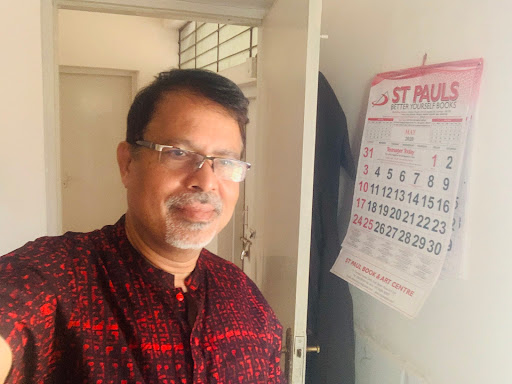As we are preparing to celebrate the VIII
PCO of the Order in the month of November 2015, I thought of writing some
reflections on the manual work in the formation. I conducted visitation in some
of the provinces in CCMSI and I was happy to see that many friars do all their
works in the community by themselves. It was also seen in the formation houses
where the students carry out most of the works. The works vary from household
to garden work, from social to charitable works.
Most of the student friars who
come from agrarian families find it easy to do manual works in the formation
house. But today in the families most of the children are not taught the
importance of work at home and as a result when they join the Order or seminary
find it difficult to do the household works. There are many who discontinue due
to this factor of manual work. In many cases the students don’t understand the
value and spirituality of work connected with religious capuchin life. Our
constitutions speak about the spirituality of work and which should be
communicated to the students.
I have seen in many places that the
formators and the other friars work along with the students, which is really a
boosting for the young students. They see their own mentors working about which
they speak in the classrooms. Today many things can be done on our own as the
modern technology allows us this comfort. In European Capuchin context, the
household workers are very few and the friars do most of the works. The
friaries are huge and the maintenance of it is very laborious and tedious too.
And yet the friars keep and maintain them well. The workers are employed when
absolutely necessary. The cooks in big friaries are normal but in small
fraternities of three friars it is not common.
In our Formation houses we could lessen
the number of workers so that the students get chance to learn and earn on
their own. The cost of living is rising higher and the cost of vegetables and
grains too. In many provinces there are gardens, which are made use of. Many of
them don’t buy vegetables from markets but produce at home.
CONGREGATION FOR INSTITUTES OF
CONSECRATED LIFE AND SOCIETIES OF APOSTOLIC LIFE
79. Work is a common law by which
religious know they are bound, and it is fitting that during the period of
formation they develop an appreciation of this, since, with respect to those
with whom we are now concerned, formation is carried on within the interior of
the monastery. Work, in order to live, is not an obstacle to the providence of
God, who is concerned with the least details of our lives; rather it enters
into his plans. It can be considered as a service to the community, a means of
exercising a certain responsibility within it, and of collaborating with
others.
It permits the development of a certain personal discipline and gives a
kind of balance to the more interior activities that make up the daily routine.
In systems of social analysis, which are becoming progressively more developed
in different countries, work also allows religious to share in the national
solidarity, from which no citizen has the right to withdraw. More commonly, it
is an element of solidarity with all the workers of the world.
Work thus responds not only to an
economic and social need, but also to an evangelical demand. No one in a
community can identify his or her self with a precise work that risks becoming
his or her own property. Instead, all should be ready for any work that can be
asked of them.
During the time of initial formation,
especially during the novitiate, the time reserved for work should not encroach
upon that which is normally reserved for studies or other activities in direct
connection with formation









No comments:
Post a Comment